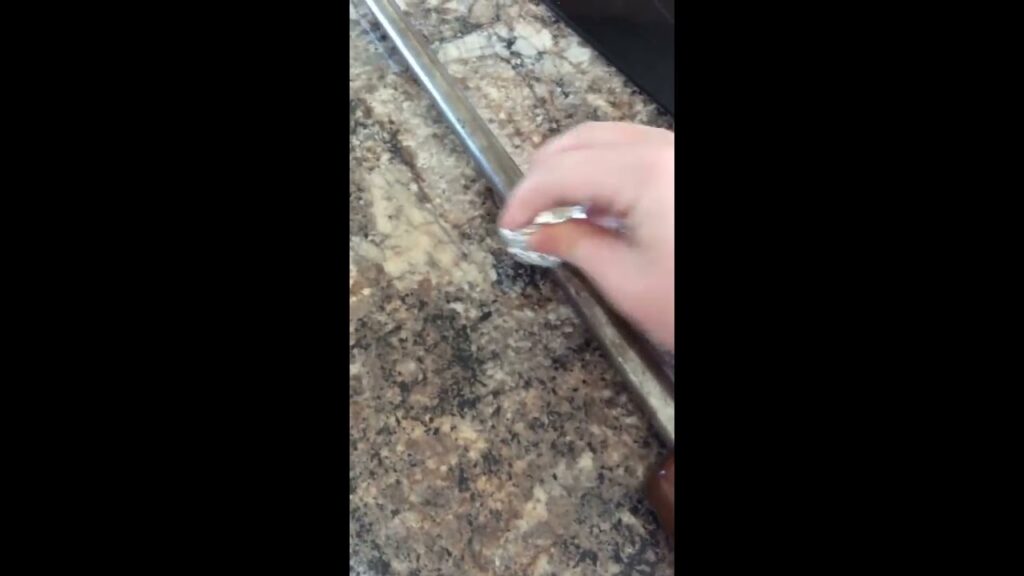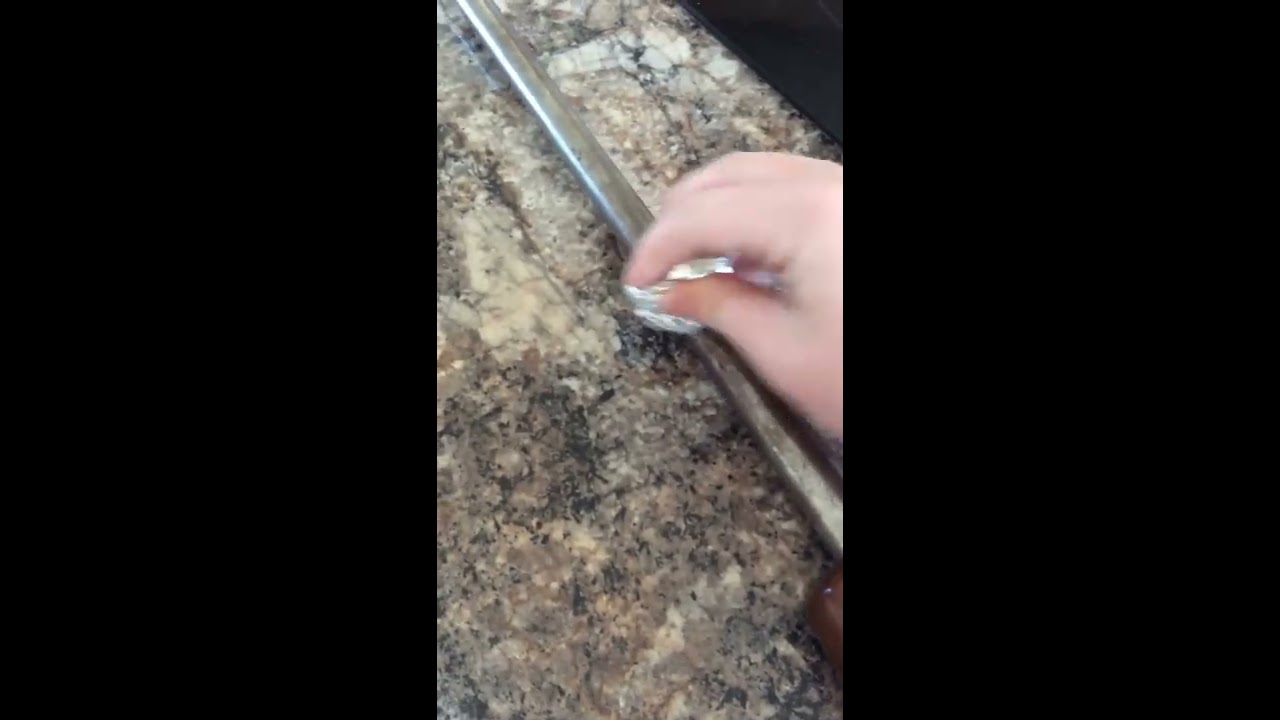
How to Remove Rust Off a Gun Barrel: A Comprehensive Guide
Rust on a gun barrel is the bane of any responsible gun owner’s existence. Not only does it mar the appearance of your firearm, but it can also compromise its performance and, more seriously, its safety. Understanding how to remove rust off a gun barrel effectively is therefore crucial for maintaining your firearm in optimal condition. This comprehensive guide will walk you through the necessary steps, offering various methods, safety precautions, and preventative measures to keep your gun barrel rust-free.
Understanding Rust Formation on Gun Barrels
Before diving into the removal process, it’s important to understand how rust forms on a gun barrel. Rust, scientifically known as iron oxide, is the result of an electrochemical reaction between iron (the primary component of steel used in gun barrels), oxygen, and moisture. This reaction corrodes the metal, weakening its structure and creating the characteristic reddish-brown flaky substance we call rust.
Several factors contribute to rust formation on gun barrels:
- Humidity: High humidity levels accelerate the rusting process.
- Exposure to Water: Rain, snow, or even condensation can lead to rust.
- Lack of Lubrication: Proper lubrication creates a protective barrier against moisture.
- Residue from Firing: Gunpowder residue is corrosive and attracts moisture.
- Handling: Oils and salts from your skin can also initiate rust.
Essential Safety Precautions
Safety should always be your top priority when handling firearms, especially during cleaning and maintenance. Before you even think about how to remove rust off a gun barrel, adhere to the following safety precautions:
- Unload the Firearm: Double-check that the firearm is completely unloaded. Remove the magazine and visually inspect the chamber to ensure no rounds are present.
- Work in a Well-Ventilated Area: Some cleaning solvents can produce harmful fumes. Ensure adequate ventilation to avoid respiratory irritation.
- Wear Protective Gear: Wear gloves (nitrile or latex) to protect your skin from chemicals and oils. Eye protection is also essential to prevent splashes from solvents or loose rust particles.
- Follow Manufacturer’s Instructions: Always consult the firearm’s manual for specific cleaning and maintenance recommendations.
- No Smoking or Open Flames: Solvents and oils are flammable. Avoid smoking or using open flames near your cleaning area.
Methods for Removing Rust from a Gun Barrel
There are several methods you can use to remove rust off a gun barrel, ranging from gentle to more aggressive techniques. The best approach depends on the severity of the rust and the type of finish on your firearm.
Light Rust Removal
For light surface rust, the following methods are often effective:
- Oil and Elbow Grease:
This is the simplest and often the most effective method for removing light rust. Apply a generous amount of gun oil (such as CLP – Clean, Lube, Protect) to the affected area. Let it soak for several minutes to loosen the rust. Then, using a soft cloth or a nylon brush, gently scrub the rust away. Repeat as necessary until the rust is gone. This method works by penetrating the rust and lifting it from the metal surface.
- Bronze Wool or Brush:
Bronze wool is softer than steel and will remove rust without scratching the gun’s finish. Apply oil to the bronze wool and gently rub the rusted area. A bronze brush can be used in a similar fashion, especially for hard-to-reach areas. Always test in an inconspicuous area first to ensure it doesn’t damage the finish.
- Pencil Eraser:
Believe it or not, a simple pencil eraser can be effective for removing small spots of rust. Gently rub the eraser over the rust until it disappears. This works best on very light surface rust.
Moderate Rust Removal
For more stubborn rust, you may need to use slightly more aggressive methods:
- Commercial Rust Remover:
There are many commercial rust removers specifically designed for firearms. Follow the manufacturer’s instructions carefully. Apply the rust remover to the affected area, let it sit for the recommended time, and then scrub with a nylon brush or bronze wool. Be sure to neutralize the rust remover afterwards, as some can be corrosive.
- Steel Wool (Grade 0000):
Extra-fine steel wool (grade 0000) can be used to remove rust, but it should be used with caution. It can scratch the finish if used improperly. Always use it with plenty of oil and apply very light pressure. Test in an inconspicuous area first.
- Vinegar Soak:
Vinegar (acetic acid) is a mild acid that can dissolve rust. Soak the affected area in vinegar for several hours or overnight. Check periodically to see if the rust is loosening. Once the rust is softened, scrub it away with a nylon brush or bronze wool. Be sure to thoroughly clean and oil the gun barrel after soaking in vinegar to prevent further rust formation.
Heavy Rust Removal
If the rust is severe and deeply embedded, you may need to consider more aggressive methods. However, these methods should be used as a last resort, as they can potentially damage the gun barrel.
- Electrolytic Rust Removal:
This method uses electrolysis to remove rust. It involves submerging the rusted part in an electrolytic solution and passing an electric current through it. This process removes the rust without damaging the underlying metal. This method requires specific equipment and knowledge, so it’s best left to experienced gunsmiths.
- Professional Gunsmith:
If you’re uncomfortable attempting any of these methods yourself, or if the rust is particularly severe, it’s best to take your firearm to a professional gunsmith. They have the expertise and tools to safely and effectively remove rust off a gun barrel without causing damage. They can also advise you on the best course of action for your specific firearm.
Post-Rust Removal: Protection and Maintenance
Once you’ve successfully removed the rust, it’s crucial to protect the gun barrel from future corrosion. Here are some essential steps to take:
- Thorough Cleaning: Clean the gun barrel thoroughly to remove any remaining rust particles or cleaning solutions. Use a bore brush and patches to clean the inside of the barrel.
- Lubrication: Apply a high-quality gun oil to all metal surfaces, including the inside and outside of the barrel. This will create a protective barrier against moisture and prevent rust from forming.
- Storage: Store your firearm in a cool, dry place. Use a gun case or safe with desiccant packs to absorb moisture.
- Regular Inspection: Regularly inspect your firearm for any signs of rust or corrosion. Address any issues promptly to prevent them from becoming severe.
Preventative Measures: Keeping Rust at Bay
The best way to deal with rust is to prevent it from forming in the first place. Here are some preventative measures you can take to keep your gun barrel rust-free:
- Regular Cleaning: Clean your firearm after each use, especially after firing. Remove any gunpowder residue or fouling that can attract moisture.
- Proper Lubrication: Lubricate your firearm regularly, even if you haven’t used it. This will protect the metal surfaces from corrosion.
- Climate Control: Store your firearm in a climate-controlled environment with low humidity.
- Silica Gel Packets: Use silica gel packets or other desiccant materials in your gun safe or storage case to absorb moisture.
- Avoid Touching Metal Surfaces: Avoid touching the metal surfaces of your firearm with your bare hands, as oils and salts from your skin can promote rust formation.
- Use a Bore Snake: A bore snake is a convenient tool for quickly cleaning the inside of the gun barrel. Use it after each shooting session to remove fouling and prevent rust.
- Consider a Rust Inhibitor: Apply a rust inhibitor to the metal surfaces of your firearm for added protection. These products create a barrier that prevents moisture from reaching the metal.
Common Mistakes to Avoid
When attempting to remove rust off a gun barrel, it’s important to avoid common mistakes that can damage your firearm:
- Using Abrasive Materials: Avoid using harsh abrasives like sandpaper or scouring pads, as they can scratch the finish.
- Applying Excessive Pressure: Avoid applying excessive pressure when scrubbing the rust, as this can also damage the finish.
- Neglecting to Neutralize: If you use a commercial rust remover or vinegar, be sure to neutralize it afterwards to prevent further corrosion.
- Failing to Lubricate: Always lubricate the gun barrel after cleaning to protect it from rust.
- Ignoring Manufacturer’s Instructions: Always consult the firearm’s manual for specific cleaning and maintenance recommendations.
Removing rust from a gun barrel requires patience, care, and the right tools. By following the steps outlined in this guide, you can effectively remove rust off a gun barrel, protect your firearm from future corrosion, and ensure its optimal performance and longevity. Remember to prioritize safety and consult a professional gunsmith if you’re unsure about any aspect of the cleaning or maintenance process. [See also: Gun Cleaning Basics] [See also: Best Gun Oils for Rust Prevention]

